Tulsi
Mostly known as Holy Basil. It is native to India and mostly cultivated in south-eastern Asia. It is commonly used for treating Asthma, cold, sore throat, high bp and cholesterol.
Also used as a stress relaxant and inflammation controller.
- Tulsi is also known as Holy Basil. It is native to India and mostly cultivated in south-eastern Asia.
- It is commonly used for treating Asthma, cold, sore throat, high bp and cholesterol.
- Also used as a stress relaxant and inflammation controller.
- Tulsi is another name in the list of plants that give out oxygen at night. The leaves of tulsi emit a characteristic scent that can soothe nerves and help reduce anxiety. Having a tulsi plant in the home, balcony or near the window allows to sleep better at night. Consuming the leaves of tulsi plant has several benefits, such as curing fever, common cold, and sharpening memory.
- Tulsi is quite famous as a spiritual plant in India. It has many health benefits.
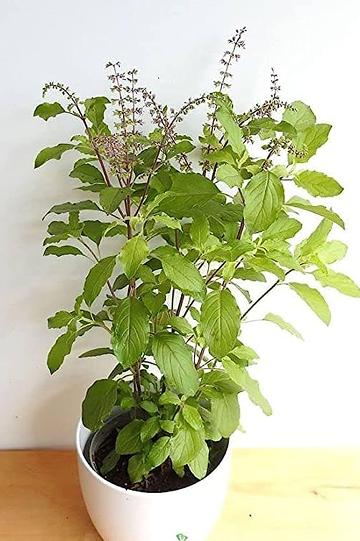
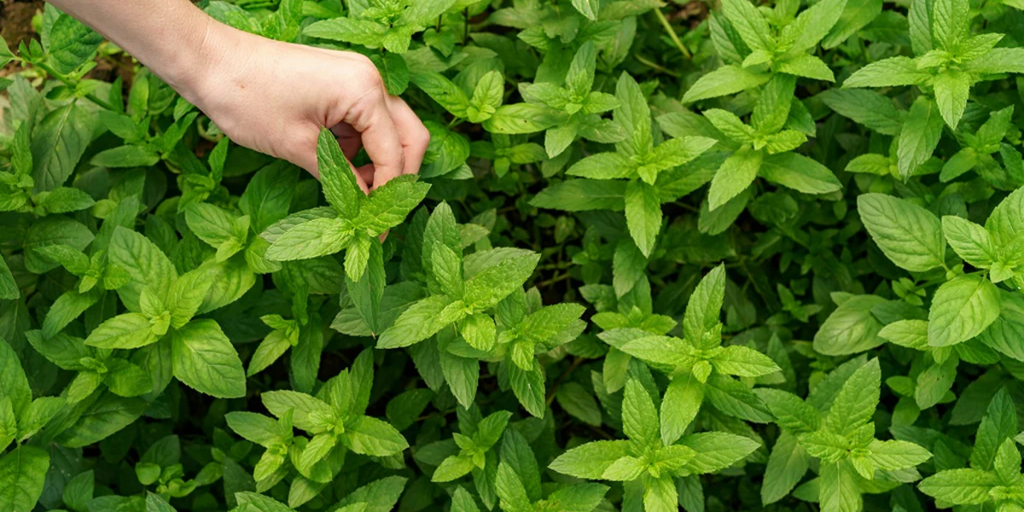
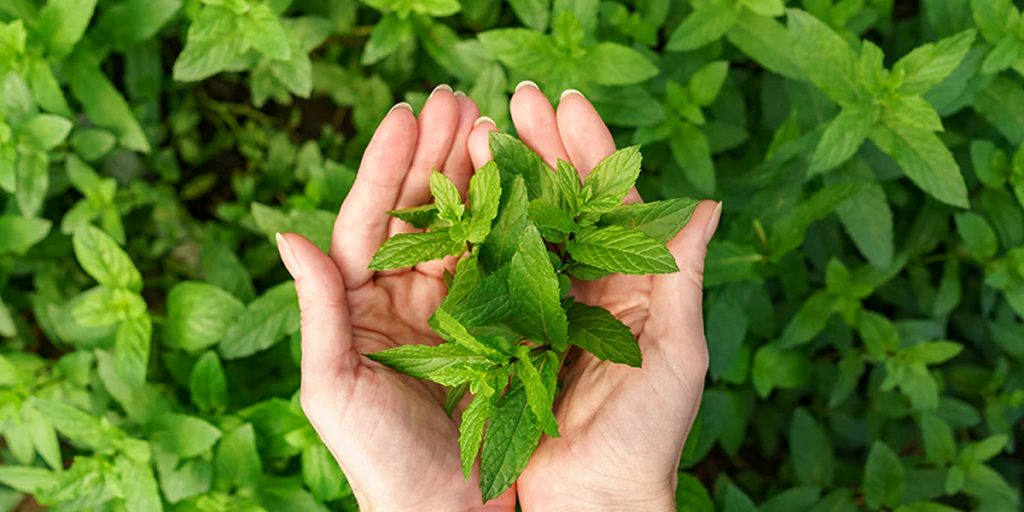
According to Ayurveda chewing Tulsi leaves improved immunity that’s many doctors have advised to chew at least 3 to 4 tulsi leaves in a day to improve immunity.
Tulsi plants can be grown in different regions depending on the variety and is a perennial plant.
If you grow Tulsi in your home it will also help to keep mosquitoes and pests away from your home. Yes, the Tulsi plant also has mosquitoes repellent qualities.
Rama Tulsi gives 24 hours of oxygen supply to the nature. It is also believed that the tulsi plant spreads positive energy. You should at least have one tulsi plant in your home.
However, this plant requires plenty of sunlight to grow that’s why it is advised to grow this plant outdoor or in the terrace garden. If your balcony or window is sun facing then you can also grow this plant there.
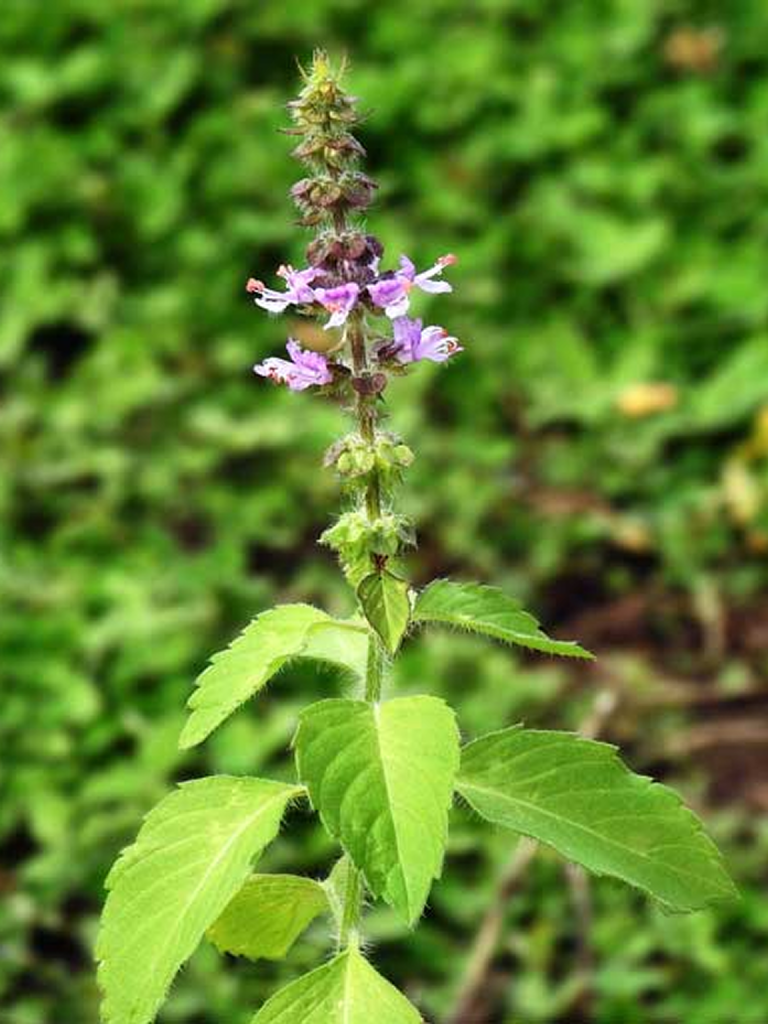
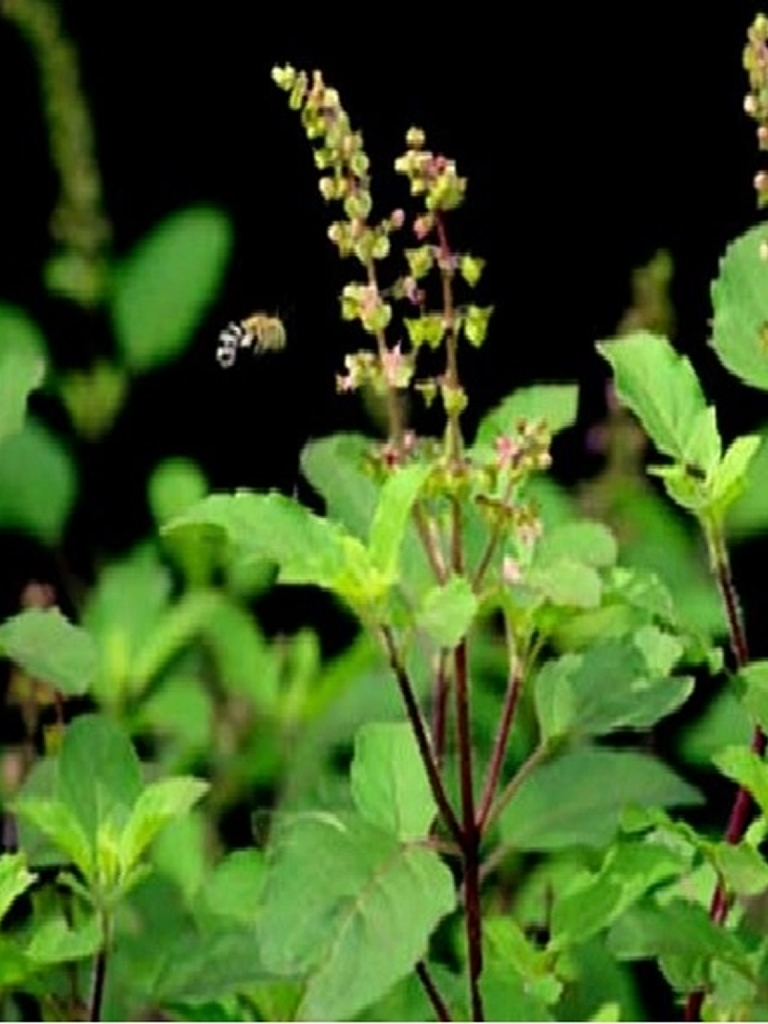
Benefits
- The Rama Tulsi plant is used in the treatment of diseases by using the methods of Siddha and Ayurveda.
- From the olden days, the leaves of tulsi are used as insect repellants.
- They are also used to cleanse the air.
Tulsi
Tulsi is believed to be a goddess itself and is considered the queen of the herbs. Having a tulsi at home is like having god residing in your home. People like to place tulsi in between their verandahs and open halls, or love to keep it indoors. According to Vastu, this sacred and auspicious plant must be placed in the North, East or North-East direction. Tulsi is also known as Holy Basil helps in detoxification of our body and contributes to removing the toxins from our blood. Tulsi is one of the most popular plants, according to Vastu that should be kept at home.
- It produces good amount of oxygen at night and has the power to absorb upto 90% of dust particles from the indoor atmosphere. This is not all. The subtle fragrance of tulsi plant induces good sleeр.

Dr. GAJANAN SANGLE
B.E.Civil Hons , MBA , PHD
ASTROLOGER | PALM READER | NUMEROLOGIST | VAASTU EXPERT | MOTIVATIONAL GUIDE
ADDRESS: Office no 1 2 3 Ground Floor Damji Shamji Business Galleria , Adjacent to D Mart , opp Toyo House , Near Mahavir Galaxy CHS , LBS Marg, Mumbai 78
Whatsapp No: +91 9769178887 Office No: +91 2246095666
EMAIL: Info@gajanansangle.com WEBSITE: www.gajanansangle.com



